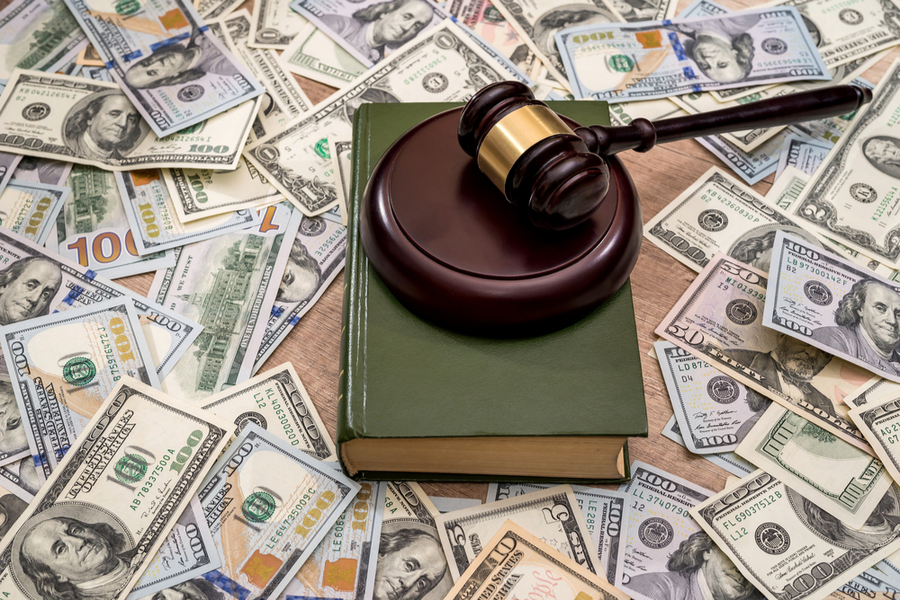Chapter 7 vs. Chapter 13
The two most common types of personal bankruptcies are chapter 7 and chapter 13. Below is a quick overview of each type of bankruptcy. Review the summary below to discover which type of bankruptcy may help you.
Chapter 7 (Liquidation)
Usually the best option when:
- You have very little property except for basic necessities like clothing and furniture.
- Your debts are primarily unsecured debts like credit cards or medical bills.
- You have little or no money left over at the end of each month once you’ve paid your basic living expenses.
Advantages of Chapter 7
1. Automatic Stay and Discharge.
Once your case is filed with the bankruptcy court, creditors can not contact you and must stop attempts to collect debts including lawsuits, wage garnishments, and all other collection proceedings. The court order called a “Discharge” makes this relief permanent!
2. Quick Relief.
A chapter 7 case proceeds rapidly through the federal court system. It typically only takes roughly 90-120 days from case filing until discharge and closure of the case (absent any complications – your lawyer will discuss if there could be any in your case)
3. Inexpensive
Typically a Chapter 7 bankruptcy case costs less than a deposition in litigation. Fees can vary depending on where you live and your situation. Figeroux & Associates Bankruptcy Law will provide you a written quote for a flat fee before you pay a dime!
4. Inexpensive
The Technical Answer: 11 U.S.C. §109(a) provides that “only a person that resides or has a place of business, or property in the United States, or a municipality, may be a debtor under this title.” Of course, there are exceptions (railroads, banks and insurance companies) in §109(b). A person is defined in 11 U.S.C. §101(41) as an “individual, partnership, and corporation, but does not include governmental unit…” Provisions enacted in 2005 in §109(h) require anyone to complete an “individual or group briefing that outlined the opportunities for available credit counseling and assisted such individual in performing a related budget analysis.” This means that practically any person or entity, with few exceptions, that resides in the United States (legally or illegally), has a place of business in the United States, or a municipality can file a Chapter 7 bankruptcy.
Chapter 13 (Repayment)
Usually the best option when:
- You have equity in a property that you don’t want to have to liquidate to pay creditors.
- You have regular income and can afford to pay your living expenses plus some, but not enough to pay your debts as agreed.
Advantages of Chapter 13
1. Automatic Stay and Discharge.
Once your case is filed with the bankruptcy court, creditors can not collect debts including foreclosures, wage garnishments and repossessions, and all other collection proceedings.
2. No Liquidation of Property.
In a chapter 13 repayment plan, you can protect your property from being sold to pay creditors.
3. Make One Payment a Month
You will only have to pay a monthly payment to the bankruptcy trustee over a 3-5 year time period. You won’t have direct contact with your creditors and you only pay back what your budget can afford, usually much less than what you owe.
4. Save Your House or Other Property from Foreclosure or Repossession.
While you must pay your mortgage and other secured creditors, chapter 13 allows you to pay what you are behind over time while preventing the creditor from repossessing your property.
5. Protect Co-Signors.
You can use Chapter 13 repayment to prevent a creditor from pursuing money from someone who helped you out by co-signing on a loan for you.
Who can file under Chapter 13?
The Technical Answer:
11 U.S.C. §109(e) provides that “only an individual with regular income that owes….unsecured debts of less than” $360,475 (amount is subject to change every 3 years pursuant to 11 U.S.C. §104 – the amounts listed are effective as of 2010) and “secured debts of less than” $1,081,400.00 or a married couple with regular income that owe less than the above disclosed amounts may be a debtor under chapter 13.
The Practical Answer:
You must be an individual or married couple to file a chapter 13. Corporate entities or partnerships can’t file under chapter 13. In addition, you must owe unsecured debts (credit cards, medical bills, student loans, etc…) less than $360,475 AND secured debts (mortgages, car loans, etc…) less than $1,081,400. Also, you must have a regular income. Without any income, it is impossible to fund a repayment plan.
Which Bankruptcy Is Best For Me? Ask a Bankruptcy Lawyer. If you are ready to get started or have more questions, click on our Free Legal Evaluation tool now! Or, call 855-768-8845 and get connected with our law firm right away! Again, contact our Brooklyn, New York office at 855-768-8845, for a free consultation.


